
The campaign for
River Access for All
Who are we?
We are a group of ordinary canoeists who work to gain recognition that there is, and always has been, a public right of navigation on our rivers.
We are not Judges or Parliament so we cannot "tell" you what the true situation is. But we can show you the evidence of history, including what Parliament and Judges have said in the past.
We also give others, if they can, the opportunity to explain the errors in our key assertions. We believe if you look at this evidence it will lead you to the inescapable conclusion that there is, and always has been, a Public Right of Navigation on all rivers in England & Wales, subject only to the physical constraints of the river and the size/nature of the craft using them.
We have no commercial interest in the successful resolution of this issue.
Our objective is simply that canoeists, swimmers and others should be able to enjoy the pleasures of our rivers through river access - for all.
Latest News
This is the latest news from River Access for All including statements from others relating to access.
If you have a news item please
Visit the news section for more news items.

Understanding the Evidence
Welsh Governments lack of knowledge on Access, and its failure to understand some of the key issues.

Remember Clause 33 ... or Forget Magna Carta
This years celebration of the 800th anniversary of the first sealing of Magna Carta will attract a great deal of attention.

The Angling Trust Dismisses Magna Carta
Mark Lloyd of the Angling Trust has dismissed the Magna Carta, Defra advice and British Library evidence with just nine words...

Welsh Government need more Time to make Plans
When the Welsh Government Minister, John Griffiths, announced the review of legislation addressing access to the countryside (including waterways) the objectives were clear...

New Approach From New Minister?
In a surprise twist on the recent government reshuffle, Dan Rogerson, the Liberal Democrat MP for North Cornwall, has gained Inland Waterways within his ministerial portfolio.
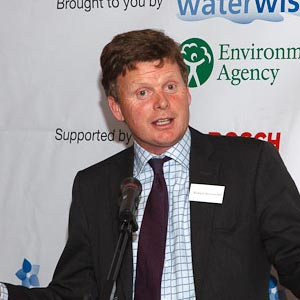
Gone Fishing?
Richard Benyon, allegedly the richest MP in Parliament, has been sacked from his job as Parliamentary Under-Secretary of State for the Natural Environment, Water and Rural Affairs at Defra.

Welsh Government Moves To Settle Access Issues
John Griffiths, Minister for Culture and Sport in the Welsh Assembly Government, has announced plans to introduce legislation to settle access to and along rivers in Wales.
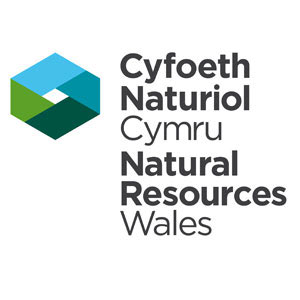
Reorganised Agencies in Wales
A new agency, Natural Resources Wales, has taken over the functions of the Countryside Council for Wales, Environment Agency Wales and Forestry Commission Wales, as well as some functions of Welsh Governmenty.

Lets Get it Clear
After finding itself on the opposite side of the argument from DEFRA over Keith the seal, the Angling Trust now finds its stance on riparian owners rights to control navigation by canoes at odds with what DEFRA say.

Changing your mind
When the facts change, I change my mind. What do you do? - John Maynard Keynes. The Angling Trust change their mind too. When they learned that a seal was in the River Severn and eating fish (as seals will) they applied to a licence to shoot it.

It was a Simple Enough Question but Not Answered
Owen Paterson, Secretary of State for the Environment, Food & Rural Affairs chose not to answer...

Why does Richard Benyon continue to encourage angling groups to believe they have a veto over navigation?
The Angling Trust have issued a statement quoting an interview with Richard Benyon, saying voluntary access agreements as the only way forward and Anglers deserve to be respected, seemingly at the expense of every other interest group...
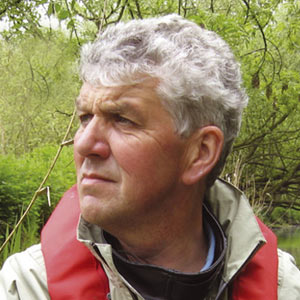
Paul Heiney, presenter of Countrywise on ITV, has signed up as a supporter of River Access For All.
River Access for All are proud to welcome Paul Heineyas a supporter. Paul writes... "Over a few decades we have seen enormous progress in giving each and every one of us access to all parts of the countryside. Where once we were barred, we are now free to roam the hills and fells, the moors and the Dales. It has been a real revolution."

World's Foremost Extreme Kayaker supports River Access For All
Shaun holds 4 world records for paddling off huge waterfalls, down seemingly impossible gradients, and even the "Land Speed Record" for a kayak (on snow!).
What others say
We also give others, if they can, the opportunity to explain the errors in our key assertions.
So if you know of such an error please tell us.
Go to the What others say page to read more.
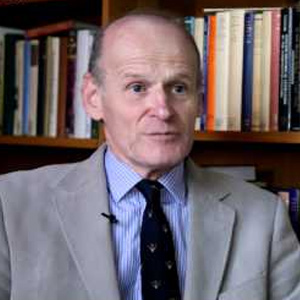
Professor Nigel Saul
 In Magna Carta ......... , clause 33 was to be of enormous significance in the history of navigation in this country, because it established the principle of free passage along England's rivers, so laying the foundations for transport development in the Industrial Revolution.
Professor Nigel Saul, Professor of Medieval History, Royal Holloway University of London (from a lecture to the All Party Parliamentary Group on the Constitution, 26 February 2013)
In Magna Carta ......... , clause 33 was to be of enormous significance in the history of navigation in this country, because it established the principle of free passage along England's rivers, so laying the foundations for transport development in the Industrial Revolution.
Professor Nigel Saul, Professor of Medieval History, Royal Holloway University of London (from a lecture to the All Party Parliamentary Group on the Constitution, 26 February 2013)

Professor Nigel Saul
Professor Nigel Saul - Professor of Medieval History, Royal Holloway University of London (from a lecture to the All Party Parliamentary Group on the Constitution, 26 February 2013)

Alun Michael
 I have seen the paper "(The Right of Navigation on Non Tidal Rivers and the Common Law - Rev. Douglas Caffyn)" and it is clear that Dr Caffyn has researched this area of law very thoroughly.
I have seen the paper "(The Right of Navigation on Non Tidal Rivers and the Common Law - Rev. Douglas Caffyn)" and it is clear that Dr Caffyn has researched this area of law very thoroughly.

Alun Michael
Minister of State for Rural Affairs and Local Environmental Quality (Defra), 2001 - 2005
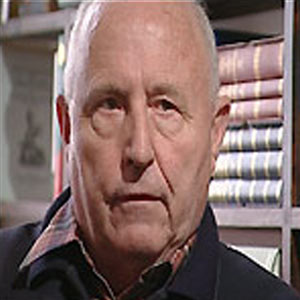
Douglas Caffyn
 In common law there is a public right of navigation on all non-tidal rivers which are naturally physically navigable by small boats and on those rivers which have been made physically navigable at public expense.
In common law there is a public right of navigation on all non-tidal rivers which are naturally physically navigable by small boats and on those rivers which have been made physically navigable at public expense.

Douglas Caffyn
The Right of Navigation on Non - tidal Rivers and the Common Law, 2004

Mr Justice Lightman
 Public Right of Navigation may only be extinguished by legislation or exercise of statutory powers or by destruction of the subject matter of PRN e.g. through silting up of the watercourse.
Public Right of Navigation may only be extinguished by legislation or exercise of statutory powers or by destruction of the subject matter of PRN e.g. through silting up of the watercourse.

Mr Justice Lightman
Josie Rowland v Environment Agency. 2002. Case No: HC 0102371.
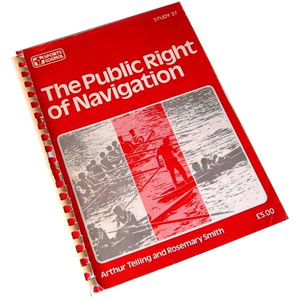
Arthur Telling
 Ten years ago the House of Lords Select Committee on Sport and Leisure gave much attention to the use of our rivers as a much needed resource for recreation and especially for navigation. Certain problems were identified: the need to open more water for navigation, the conflicts between navigators and anglers, and above all the uncertainties of the legal position about public rights of navigation. These problems remain largely unresolved.
Ten years ago the House of Lords Select Committee on Sport and Leisure gave much attention to the use of our rivers as a much needed resource for recreation and especially for navigation. Certain problems were identified: the need to open more water for navigation, the conflicts between navigators and anglers, and above all the uncertainties of the legal position about public rights of navigation. These problems remain largely unresolved.

Arthur Telling
THE PUBLIC RIGHT OF NAVIGATION - A Report to The Sports Council and The Water Space Amenity Commission, 1985
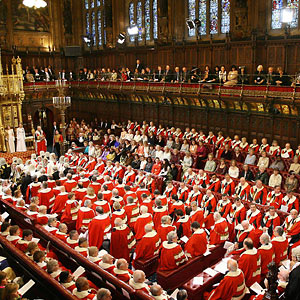
House of Lords Select Committee
 The legal question of rights of way over water must be settled. A number of different legal interpretations of this right of way have been referred to in evidence and it is time for these to be resolved.
The legal question of rights of way over water must be settled. A number of different legal interpretations of this right of way have been referred to in evidence and it is time for these to be resolved.

House of Lords Select Committee
House of Lords Select Committee on Sport & Leisure, 1973.

National Federation of Anglers, The Water Space Amenity Commission and the BCU
 ... to work actively towards and ultimately achieve a situation where canoeists can paddle all waters suitable for canoeing without challenge, but with reasonable consideration for other water users, and with due regard for the law and conservation of the environment.
... to work actively towards and ultimately achieve a situation where canoeists can paddle all waters suitable for canoeing without challenge, but with reasonable consideration for other water users, and with due regard for the law and conservation of the environment.

National Federation of Anglers, The Water Space Amenity Commission and the BCU
Statement of Intent jointly issued by the National Federation of Anglers, The Water Space Amenity Commission and the BCU, 1982.

Department for Environment, Food & Rural Affairs
 Access to land and water should be allowed provided that there is no significant danger to public health and safety, risk of pollution or damage, or harmful impact on wildlife. If access is not possible, public notices should normally be displayed explaining why.
Access to land and water should be allowed provided that there is no significant danger to public health and safety, risk of pollution or damage, or harmful impact on wildlife. If access is not possible, public notices should normally be displayed explaining why.

Department for Environment, Food & Rural Affairs
Department for Environment, Food & Rural Affairs, Environment Act 1995 Water Industry Act 1991, Code of Practice on Conservation, Access and Recreation:, Guidance for the Environment Agency and Water and Sewerage Undertakers

Red card to Red Tape
 DEFRA should introduce a statutory right of access in England and Wales for unpowered craft to inland water for recreational purposes. This system of rights and responsibilities should be based on the Scottish Outdoor Access Code.
DEFRA should introduce a statutory right of access in England and Wales for unpowered craft to inland water for recreational purposes. This system of rights and responsibilities should be based on the Scottish Outdoor Access Code.

Red card to Red Tape
Red card to Red Tape Report commissioned by the Department for Culture, Media and Sport Researched & Written by The Sport & Recreational Alliance, 2011
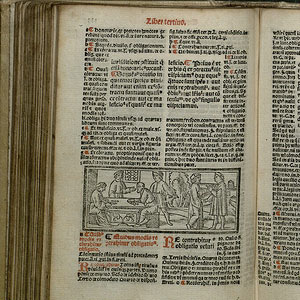
The Institutes of Justinian
 by natural law, these things are common property of all: air, running water, the sea, and with it the shores of the sea.
by natural law, these things are common property of all: air, running water, the sea, and with it the shores of the sea.

The Institutes of Justinian
The Institutes of Justinian - Roman Law

US Supreme Court
 Those rivers must be regarded as public navigable rivers in law which are navigable in fact.
Those rivers must be regarded as public navigable rivers in law which are navigable in fact.

US Supreme Court
US Supreme Court - The Daniel Ball, 77 U.S. (10 Wall.) 557, 563 (1870).

John Taylor
 I truely treate that men may note and see,
What blessings Navigable Rivers bee,
And how that thousands are debarr'd those blessings,
By few mens avaritious hard oppressings.
I truely treate that men may note and see,
What blessings Navigable Rivers bee,
And how that thousands are debarr'd those blessings,
By few mens avaritious hard oppressings.

John Taylor
John Taylor (The Water Poet - 1578 - 1653)

Sir Matthew Hale
Chief Justice of the King's Bench
 If a river bee not passable by boats or vessels of burthen, yet if it bee commonly passed by small boats or troughs, it is as to that purpose a common river as a foote way may be a common way as well as a Cartway. The question whither a river bee a common or high streame or river is a question of fact and tryable by jury: and if any have commonly passed there in those small boats, is an evidence of a common streame or river.
If a river bee not passable by boats or vessels of burthen, yet if it bee commonly passed by small boats or troughs, it is as to that purpose a common river as a foote way may be a common way as well as a Cartway. The question whither a river bee a common or high streame or river is a question of fact and tryable by jury: and if any have commonly passed there in those small boats, is an evidence of a common streame or river.

Sir Matthew Hale
Sir Matthew Hale - Lord Chief Justice (1671 - 1676)

Henry David Thoreau
 Wherever there is a channel for water, there is a road for the canoe.
Wherever there is a channel for water, there is a road for the canoe.

Henry David Thoreau

EA Report W266
 Therefore in conclusion, the consensus opinion of the assembled panel of experts is:
Therefore in conclusion, the consensus opinion of the assembled panel of experts is:
"Canoeing is not harmful to coarse or salmonid fish stocks in rivers"















